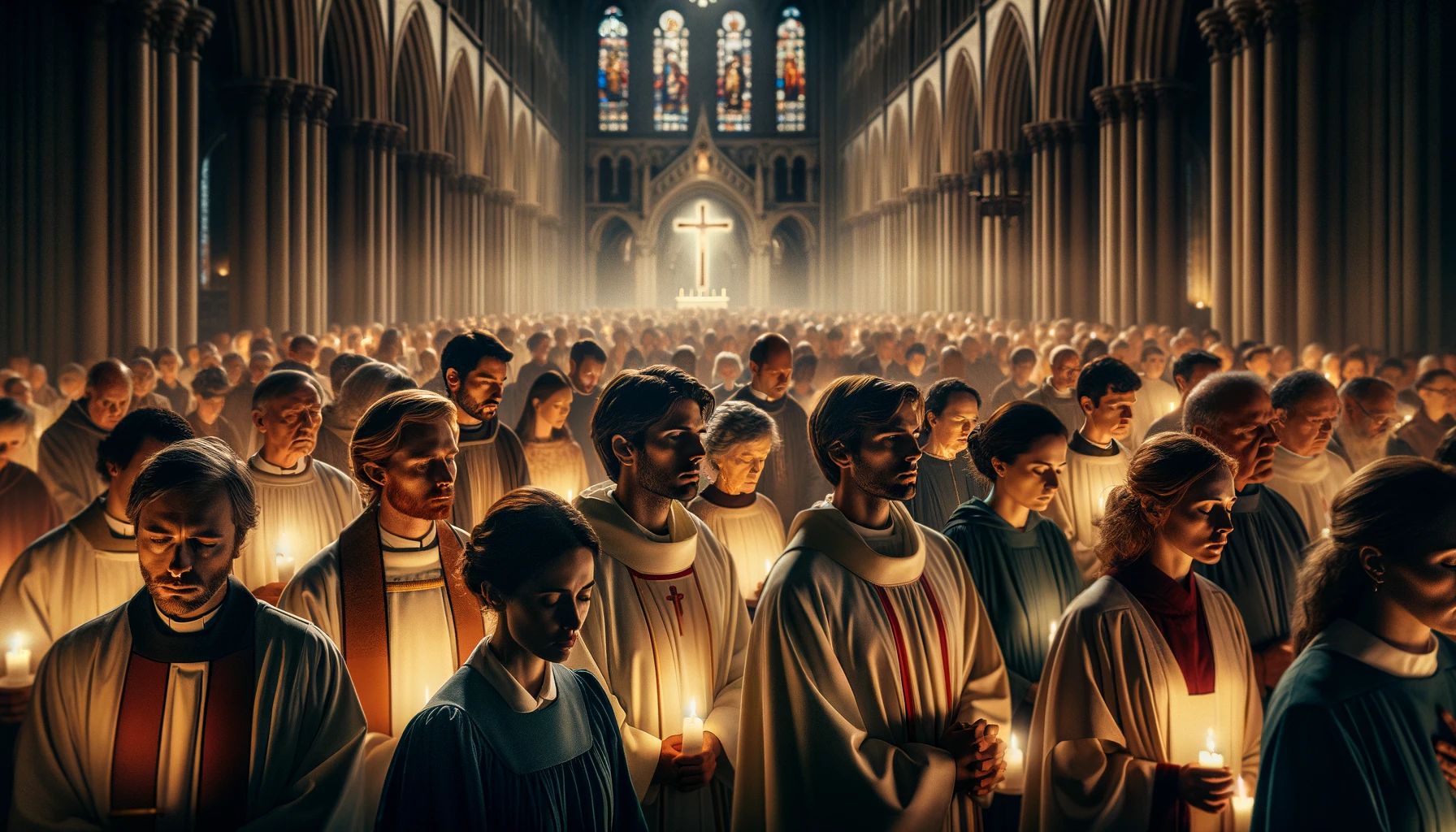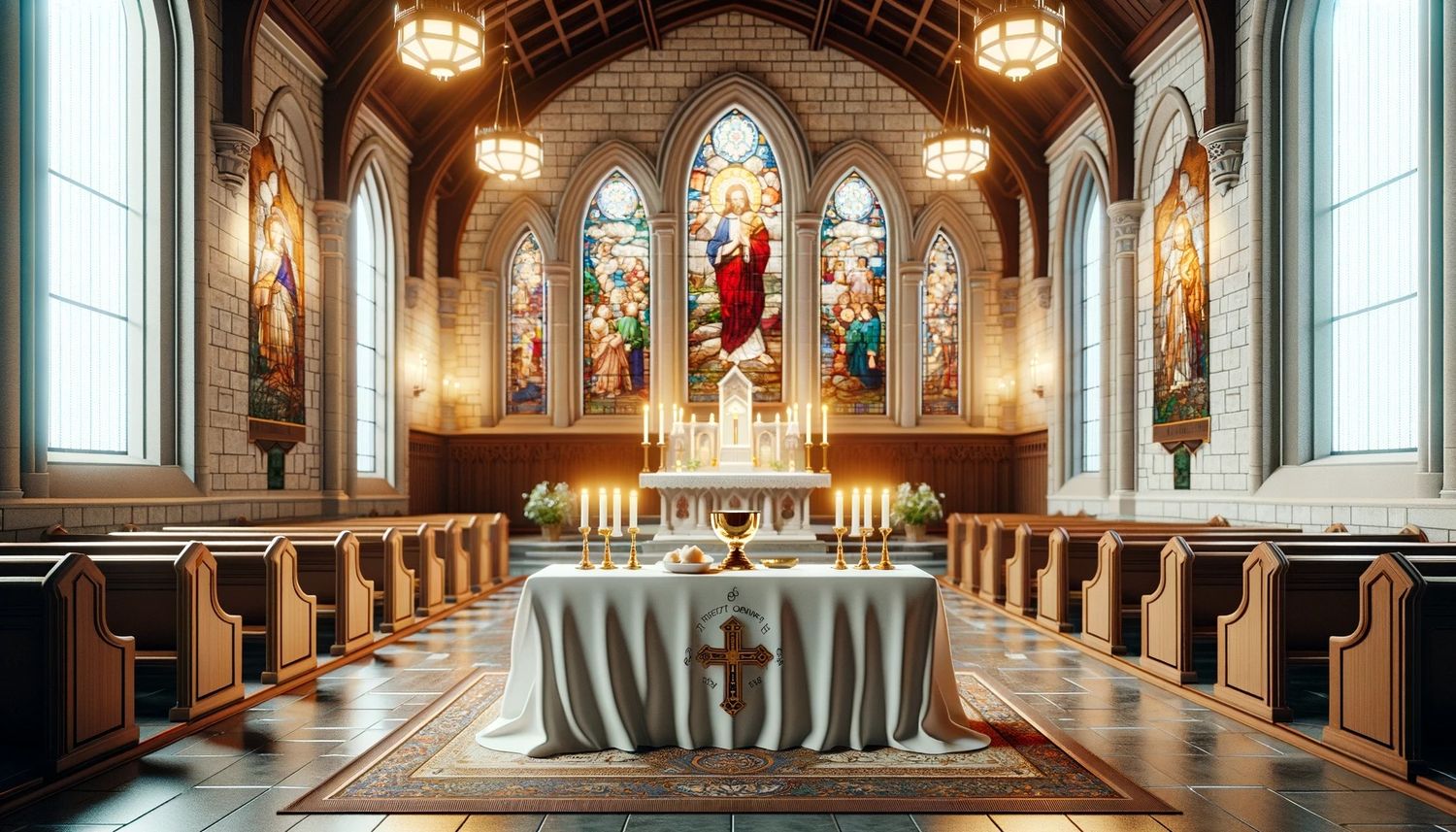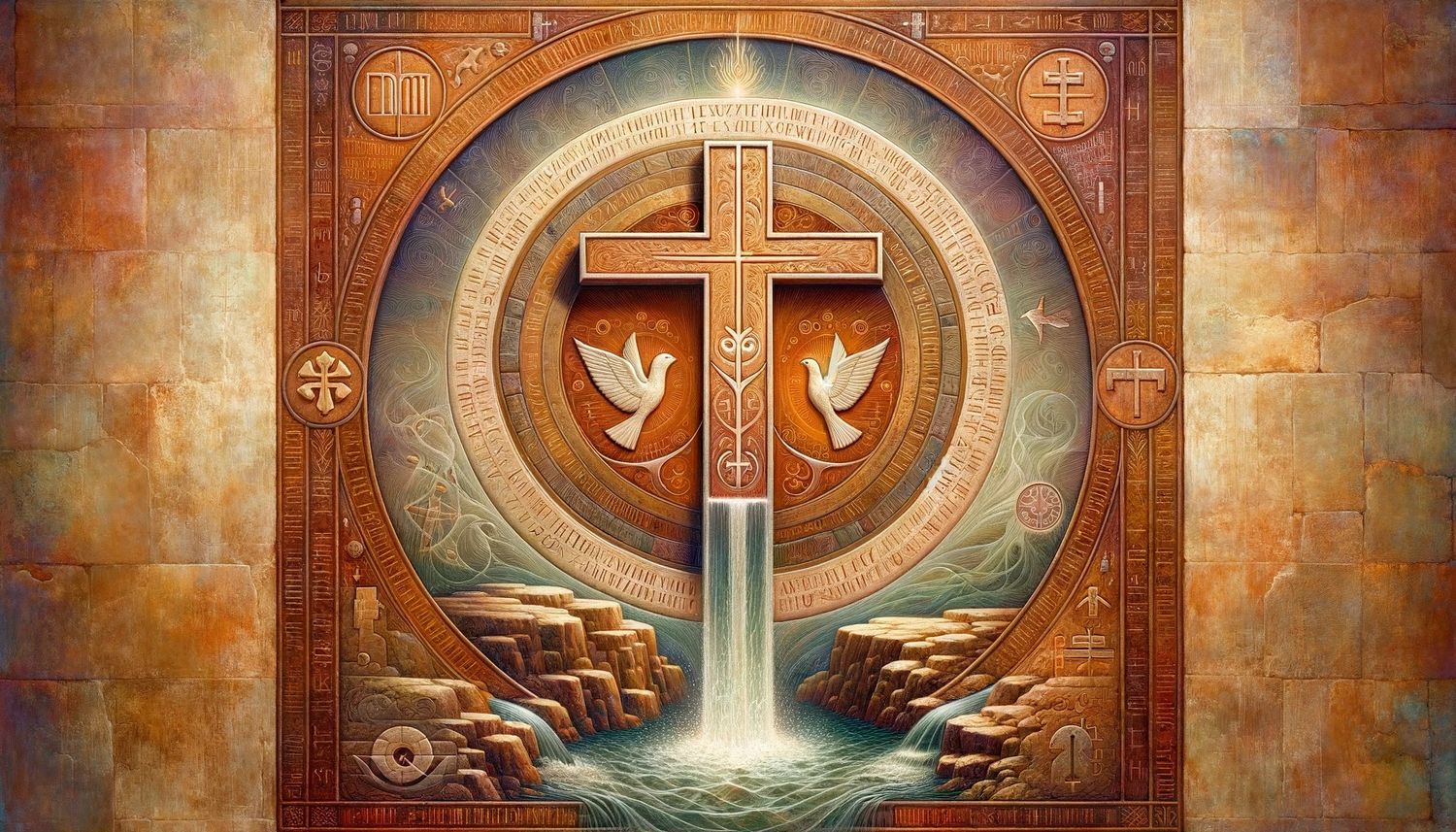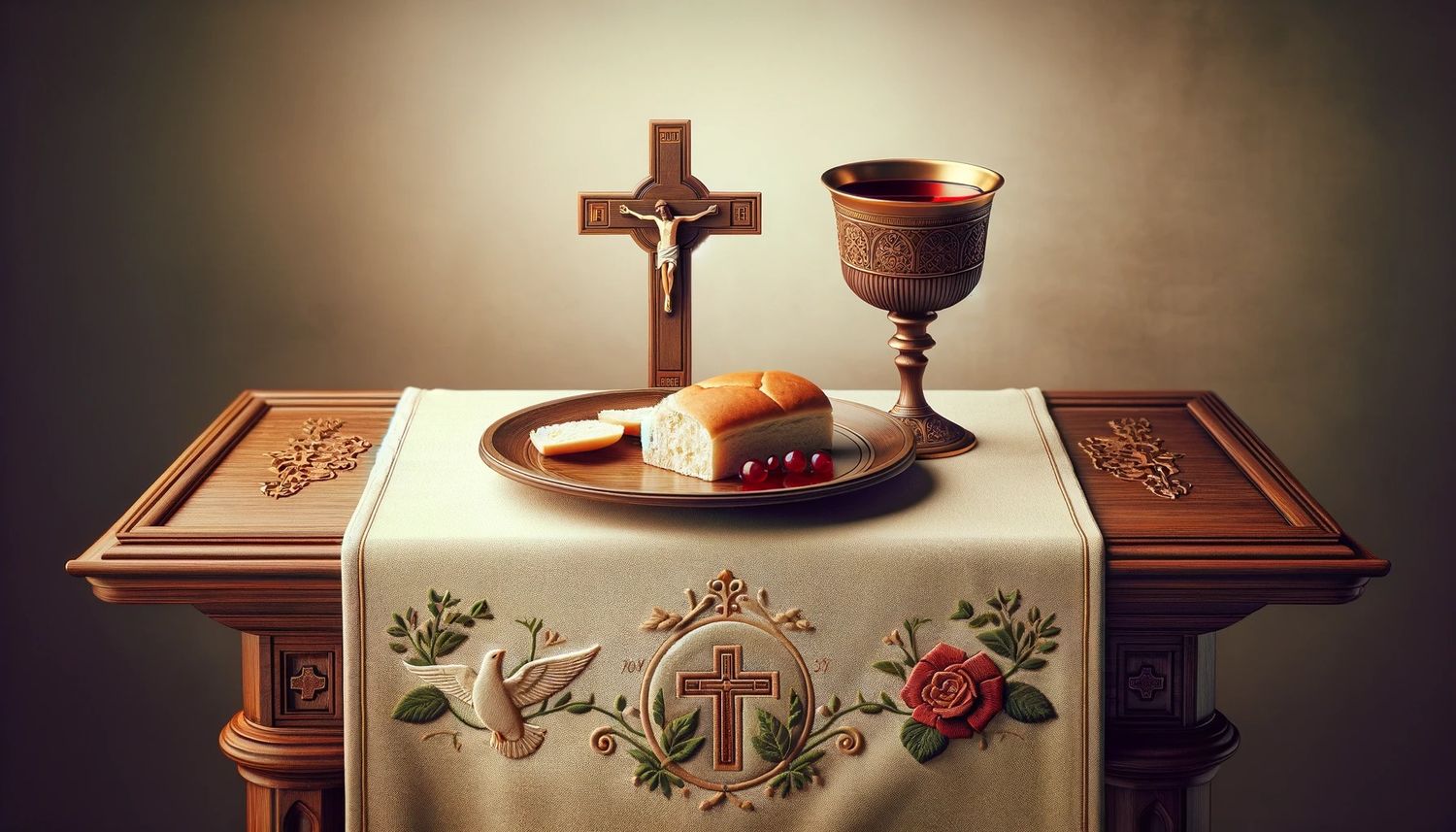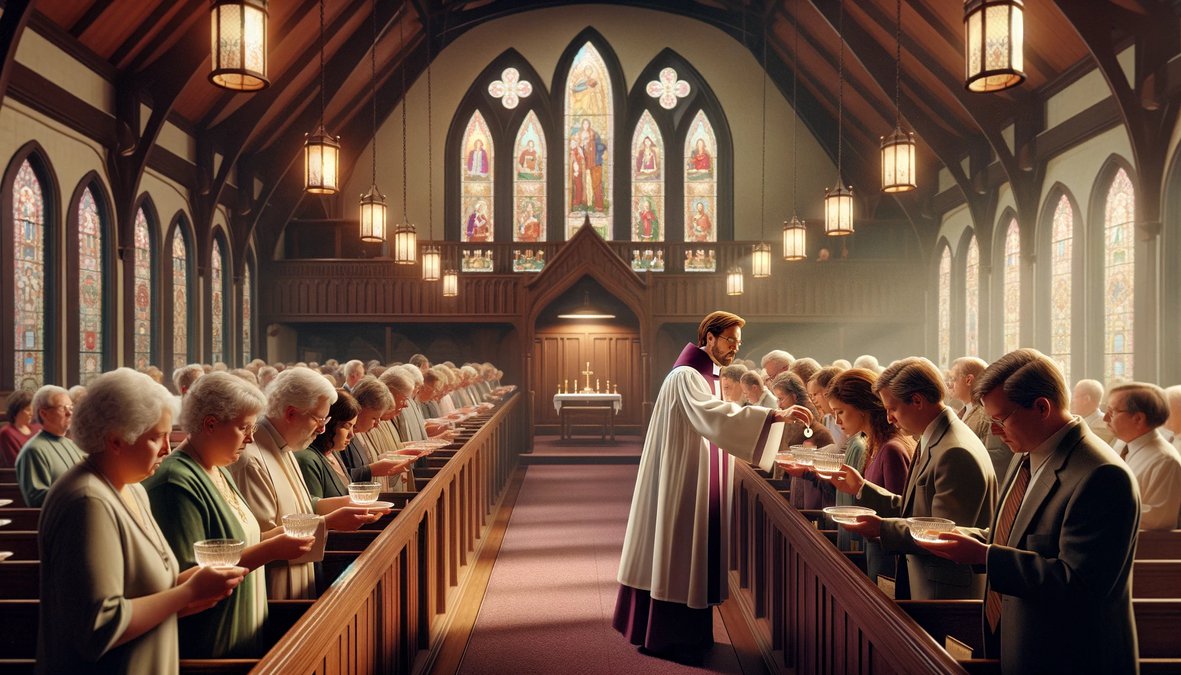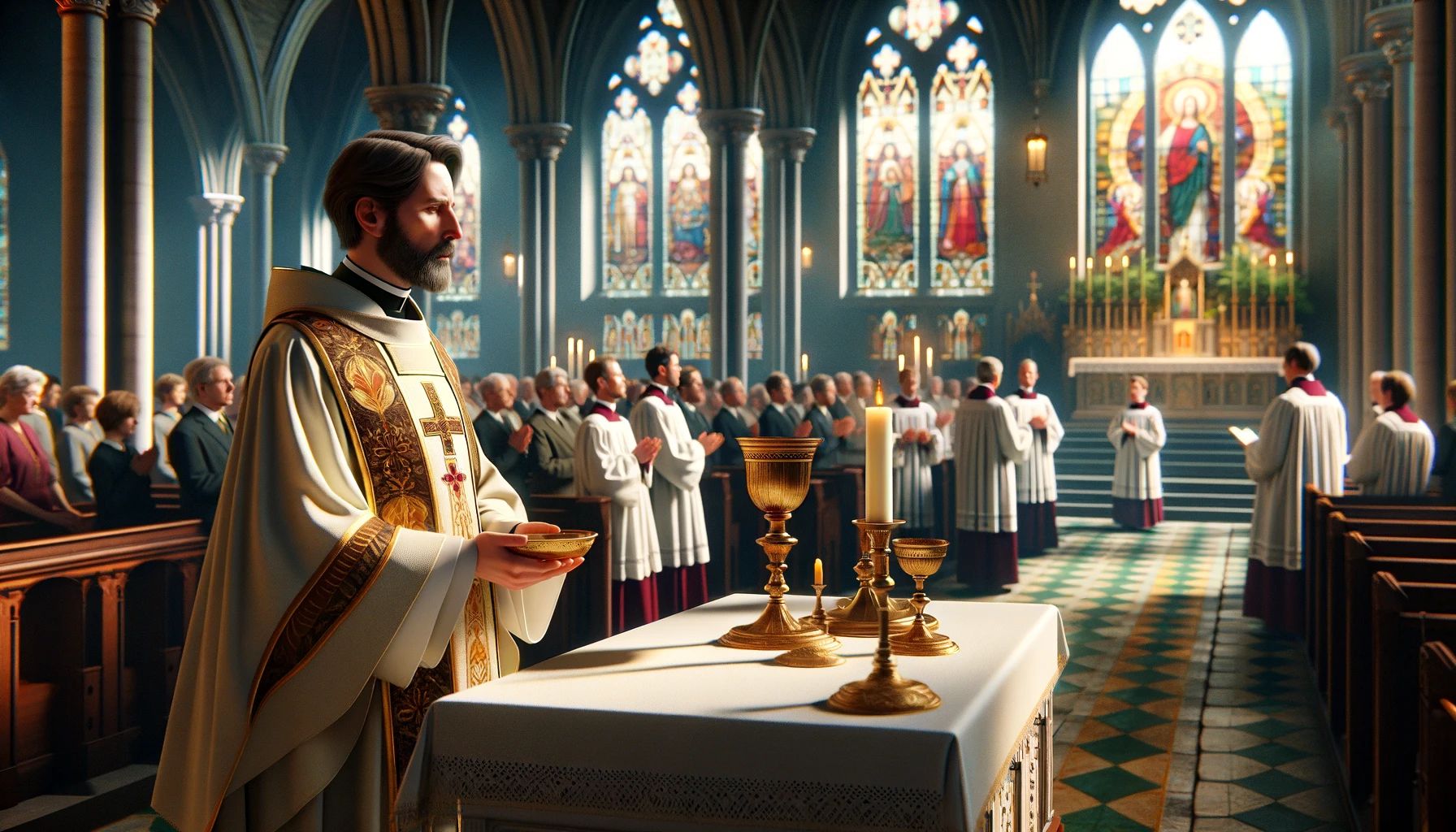Home>Theology and Spirituality>What Was Communion Like In The Early Church
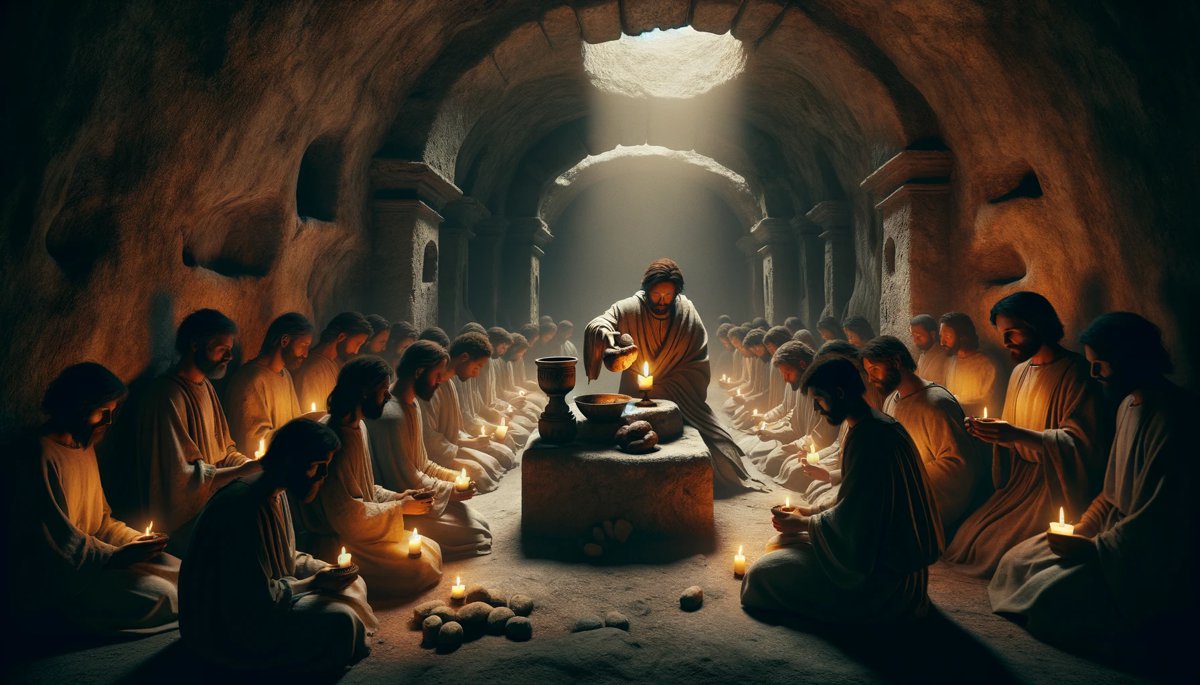

Theology and Spirituality
What Was Communion Like In The Early Church
Published: February 19, 2024
Peter Smith, Editorial Director at Christian.net, combines deep insights into faith, politics, and culture to lead content creation that resonates widely. Awarded for his contributions to religious discourse, he previously headed a major organization for religious communicators, enhancing dialogue on faith's societal impacts.
Explore the origins of communion in the early church and its significance in theology and spirituality. Learn about the historical practices and beliefs that shaped this sacred ritual.
(Many of the links in this article redirect to a specific reviewed product. Your purchase of these products through affiliate links helps to generate commission for Christian.net, at no extra cost. Learn more)
Table of Contents
Introduction
Communion, also known as the Eucharist or the Lord's Supper, holds profound significance in Christian theology and practice. It is a sacred ritual that symbolizes the spiritual nourishment and unity of believers with Christ and one another. Exploring the origins and practices of communion in the early church provides valuable insights into its foundational role in Christian faith and community.
The early church's approach to communion reflects the deep reverence and spiritual intimacy that characterized the believers' gatherings. By delving into the historical and theological dimensions of communion in the early church, we gain a deeper understanding of its centrality in shaping Christian worship and fellowship. Let's embark on a journey to uncover the rich tapestry of communion practices in the early church and discern its enduring significance in the life of the Christian community.
The Origins of Communion
The origins of communion can be traced back to the Last Supper, a pivotal event in Christian tradition. According to the New Testament accounts, Jesus Christ shared a final meal with his disciples before his crucifixion. During this momentous gathering, he instituted the practice of communion by offering bread and wine as symbols of his body and blood, instructing his followers to partake in remembrance of him.
The significance of this act lies in its profound symbolism. The bread represents Christ's body, broken for the redemption of humanity, while the wine symbolizes his blood, shed for the forgiveness of sins. This symbolic gesture established the foundation for the sacrament of communion, embodying the spiritual nourishment and unity of believers with Christ and one another.
The roots of communion can also be found in the Jewish Passover tradition, which Jesus and his disciples were celebrating at the Last Supper. The Passover meal held deep historical and religious significance for the Jewish people, commemorating their deliverance from slavery in Egypt. Jesus imbued this sacred tradition with new meaning, transforming it into a commemoration of his impending sacrifice and the establishment of a new covenant between God and humanity.
Furthermore, the early Christian community embraced and expanded upon the practice of communion, integrating it into their worship and fellowship. The apostle Paul, in his first letter to the Corinthians, provided additional theological insight into the significance of communion, emphasizing its role in proclaiming the Lord's death until his return and fostering unity among believers.
The origins of communion, therefore, are rooted in the profound actions and teachings of Jesus Christ, which were subsequently embraced and elaborated upon by the early Christian community. This foundational ritual continues to hold deep spiritual and theological significance for Christians worldwide, serving as a tangible expression of their faith and communal identity.
Communion in the New Testament
Communion, as practiced in the New Testament, finds its roots in the accounts of the Last Supper, a pivotal event in Christian tradition. The Gospels of Matthew, Mark, and Luke, as well as the writings of the apostle Paul in 1 Corinthians, provide significant insights into the establishment and early observance of communion.
In the Gospel narratives, the Last Supper is portrayed as a sacred and solemn occasion where Jesus shared a final meal with his disciples before his crucifixion. During this gathering, he instituted the practice of communion by taking bread, giving thanks, breaking it, and giving it to his disciples, saying, "Take, eat; this is my body." He then took the cup, gave thanks, and gave it to them, saying, "Drink from it, all of you; for this is my blood of the covenant, which is poured out for many for the forgiveness of sins" (Matthew 26:26-28, NRSV).
These symbolic actions and words of Jesus established the foundation for the sacrament of communion, signifying the spiritual nourishment and unity of believers with Christ and one another. The bread symbolizes Christ's body, given for the redemption of humanity, while the wine represents his blood, shed for the forgiveness of sins. This profound act of sharing a meal with his disciples and imbuing it with spiritual significance underscores the deeply relational and transformative nature of communion.
The apostle Paul, in his first letter to the Corinthians, provides additional theological insight into the significance of communion. He recounts the words of Jesus at the Last Supper and emphasizes the ongoing observance of communion as a means of proclaiming the Lord's death until his return (1 Corinthians 11:23-26). Paul's exhortation underscores the enduring and commemorative nature of communion, linking it to the central tenets of Christian faith and the anticipation of Christ's second coming.
The New Testament accounts of communion, therefore, offer profound insights into its origins and theological significance. They depict communion as a sacred and transformative practice that embodies the spiritual nourishment, communal unity, and eschatological hope of the Christian community. These foundational narratives continue to shape the observance and understanding of communion in contemporary Christian worship and theology, serving as a tangible expression of faith and communal identity.
Communion Practices in the Early Church
In the early church, communion held a central and revered position in the life of Christian communities. The practices surrounding communion were deeply rooted in the teachings of Jesus Christ and the apostolic traditions, shaping the worship, fellowship, and spiritual identity of believers.
The early Christians gathered regularly to partake in the communal meal that symbolized their unity in Christ and their participation in the new covenant. These gatherings, often referred to as "love feasts" or agape meals, were characterized by a spirit of fellowship, mutual support, and the sharing of material resources among the members of the community. The communal aspect of these gatherings reflected the early Christians' commitment to embodying the love and unity exemplified by Christ.
The celebration of communion within the context of these love feasts involved the sharing of bread and wine, symbolizing the body and blood of Christ, and serving as a tangible expression of the believers' spiritual nourishment and communal bond. The act of partaking in the elements was imbued with deep reverence and solemnity, underscoring the believers' acknowledgment of Christ's sacrificial death and their participation in the redemptive work of the new covenant.
Furthermore, the early church placed significant emphasis on the ethical and communal dimensions of communion. The apostle Paul, in his first letter to the Corinthians, addressed issues of unity, equality, and mutual care within the context of the communal meal, highlighting the need for genuine love and consideration for one another. This ethical dimension underscored the early Christians' commitment to embodying the principles of justice, compassion, and solidarity within their faith communities.
As the early church expanded and encountered diverse cultural contexts, variations in the practice of communion emerged. However, the foundational elements of sharing bread and wine as symbols of Christ's body and blood remained central to the communion practices across different Christian communities.
The communion practices in the early church, therefore, reflected a profound integration of spiritual, communal, and ethical dimensions, shaping the identity and ethos of the Christian community. The observance of communion served as a tangible expression of the believers' shared faith, mutual support, and commitment to embodying the teachings of Christ in their communal life.
The Significance of Communion in the Early Church
The significance of communion in the early church extended far beyond a mere ritualistic practice; it encompassed profound spiritual, communal, and ethical dimensions that shaped the identity and ethos of the Christian community. At the heart of communion lay the remembrance of Christ's sacrificial death and the believers' participation in the redemptive work of the new covenant. This act of remembrance served as a unifying force, binding the early Christians together in their shared faith and communal identity.
Communion held deep spiritual significance as it symbolized the believers' spiritual nourishment and unity with Christ and one another. The sharing of bread and wine during the communal meal represented the body and blood of Christ, signifying the believers' participation in the life-giving sustenance offered through Christ's sacrifice. This symbolic act fostered a profound sense of spiritual intimacy and solidarity among the early Christians, reinforcing their shared commitment to the teachings and person of Jesus Christ.
Furthermore, communion played a pivotal role in shaping the communal life of the early church. The love feasts or agape meals, where communion was celebrated, provided a context for fellowship, mutual support, and the sharing of material resources among the members of the community. These gatherings exemplified the early Christians' dedication to embodying the love and unity demonstrated by Christ, fostering a sense of belonging and interconnectedness within the faith community.
Ethically, communion underscored the principles of justice, equality, and mutual care within the early Christian communities. The apostle Paul's exhortations to the Corinthians regarding the ethical conduct during the communal meal highlighted the importance of genuine love and consideration for one another. Communion, therefore, served as a tangible expression of the believers' commitment to embodying Christ-like virtues of compassion, humility, and mutual support in their interactions and relationships.
In essence, the significance of communion in the early church encompassed its role as a spiritual symbol, a communal expression of unity, and an ethical imperative. This multifaceted significance not only enriched the spiritual and communal life of the early Christians but also continues to resonate in the observance of communion within contemporary Christian traditions, serving as a timeless reminder of the transformative power of Christ's sacrifice and the call to embody his love and unity in the world.
Read more: Guide to The Early Church History Documents
Conclusion
In conclusion, the exploration of communion in the early church unveils a tapestry of profound spiritual, communal, and ethical significance that continues to resonate in Christian faith and practice. The origins of communion, rooted in the Last Supper and the teachings of Jesus Christ, established a foundational ritual that symbolizes the believers' spiritual nourishment and unity with Christ and one another. The New Testament accounts provide rich insights into the establishment and early observance of communion, portraying it as a sacred and transformative practice that embodies the relational and redemptive essence of the Christian faith.
The communion practices in the early church, characterized by the celebration of love feasts and the sharing of bread and wine, reflected the believers' commitment to embodying the love and unity exemplified by Christ. These communal gatherings served as a tangible expression of fellowship, mutual support, and the ethical imperative of genuine love and consideration for one another. The multifaceted significance of communion encompassed its role as a spiritual symbol, a communal expression of unity, and an ethical imperative, shaping the identity and ethos of the Christian community.
The enduring significance of communion in the early church transcends historical context, offering timeless insights into the transformative power of Christ's sacrifice and the call to embody his love and unity in the world. As contemporary Christian communities continue to observe communion, they are invited to reflect on its profound spiritual, communal, and ethical dimensions, embracing the legacy of the early church as they partake in the sacred ritual that unites them with Christ and fellow believers.
Ultimately, the exploration of communion in the early church serves as a testament to the enduring legacy of a practice that continues to nourish the hearts, minds, and souls of believers, fostering spiritual intimacy, communal unity, and ethical responsibility. It stands as a timeless symbol of Christ's redemptive love and the believers' shared commitment to embodying that love in their communal life and interactions. As the journey through the origins and practices of communion in the early church concludes, it leaves an indelible imprint on the collective memory of the Christian faith, inspiring a continued reverence for the sacred ritual that binds believers across time and space.
